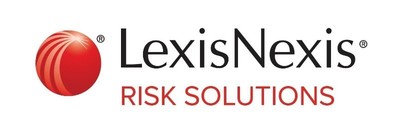Digital Payment Fraud in High Growth Markets Study from LexisNexis Risk Solutions Finds 90% of Respondents Experienced an Increase in Online Fraud Over Past 12 Months
LexisNexis Risk Solutions released a study indicating that 80% of institutions expect an increase in fraud risk over the next 24 months. The survey, which included 326 decision-makers from sectors like financial services and retail, revealed that all types of fraud surged by an average of 37% in the past year. Digital wallet scams and phishing have notably risen. Organizations struggle with privacy concerns and poor user experiences while implementing new fraud prevention strategies. The study emphasizes the need for enhanced fraud management as digital payment methods become more prevalent.
- 80% of respondents expect fraud risk to rise, indicating a proactive approach to fraud management.
- The study highlights an increasing focus on consumer confidence and digital experience in fraud prevention.
- All types of fraud have increased by approximately 37% in the last year.
- Only 42% of organizations utilize multifactor authentication, indicating potential vulnerability.
- Challenges in online fraud prevention include privacy concerns and complex technology implementations.
Insights
Analyzing...
ATLANTA, Oct. 20, 2022 /PRNewswire/ -- LexisNexis® Risk Solutions released the findings of its Digital Payment Fraud in High Growth Markets Study, a commissioned survey conducted by Forrester Consulting that explores the rise of digital payments and fraud attacks and examines what firms are doing to become future-fit with better fraud management. The survey consists of 326 decision-makers from Latin America (LATAM), Europe/Middle East/Africa (EMEA) and Asia-Pacific (APAC) in sectors such as financial services, media, retail and telecommunications.
Fraudsters are targeting consumers who are increasingly become reliant on digital channels for their shopping, entertainment and banking activities. This has further intensified during the pandemic and spurred new fraud trends. Companies are prioritizing their fraud prevention strategies as a result while focusing on the consumer's digital experience to retain and acquire new consumers and increase consumer confidence.
Key Findings from the LexisNexis Risk Solutions Digital Payment Fraud in High Growth Markets Study:
- Increase in Fraud: All types of fraud have increased by an average of approximately
37% over the past 12 months, while nine out of 10 of respondents said their firms have experienced an increase of online fraud in the same time period. Digital wallet payment scams, QR code fraud and crypto fraud are prevalent across all high growth markets, driven by the popularity of alternative payment methods. Fake account registration fraud and scams such as phishing, smishing and vishing have particularly increased in LATAM and APAC. - Fraud Detection: One-time passwords are the top authentication and fraud prevention method in APAC and organizations in EMEA and LATAM are prioritizing biometric authentication. However, use of less mature authentication methods such as static passwords and device verification remain prevalent.
- Top Challenges: The most challenging hurdles in online fraud prevention and detection faced by firms center on difficulties in privacy concerns, poor user experiences, technology implementation complexity and ineffective solutions. Additionally, as consumers demand more payment choice flexibility, companies must implement new and emerging payment types to meet rising expectations but are struggling to protect customer data from the various types of sophisticated payment fraud. Only
42% of respondent organizations use multifactor authentication. - Being Future Fit: Eighty percent (
80% ) of respondents across regions expect that fraud risk will increase over the next 24 months. Businesses expect more payment options and new business models over the next two years with real-time payments becoming the norm. Emerging payment types has prompted a faster evolution of anti-fraud programs to keep ahead of bad actors who are rapidly adapting their attack vectors. A growing number of firms indicated they are also helping consumers and employees identify and prevent fraud by raising awareness and providing ongoing training.
"The rapid transition to digital transactions can be a double-edged sword," said Pratik Choudhary, manager of fraud and identity strategy for LexisNexis Risk Solutions. "While it significantly improves the consumer experience it has left many organizations vulnerable to fraud. Businesses need to embrace newer payment methods, including online banking and digital wallets, but also prepare for the sophistication of payment fraud. With a strong fraud risk management and fraud monitoring capabilities, institutions across high growth markets can reduce fraud losses, maintaining customer trust and safeguard their reputation, all while preparing for new regulations."
Download a copy of the Digital Payment Fraud in High Growth Markets Study.
About LexisNexis Risk Solutions
LexisNexis® Risk Solutions harnesses the power of data and advanced analytics to provide insights that help businesses and governmental entities reduce risk and improve decisions to benefit people around the globe. We provide data and technology solutions for a wide range of industries including insurance, financial services, healthcare and government. Headquartered in metro Atlanta, Georgia, we have offices throughout the world and are part of RELX (LSE: REL/NYSE: RELX), a global provider of information-based analytics and decision tools for professional and business customers. For more information, please visit www.risk.lexisnexis.com and www.relx.com.
Media Contact:
Marcy Theobald
678.694.6681
Marcy.Theobald@lexisnexisrisk.com
![]() View original content to download multimedia:https://www.prnewswire.com/news-releases/digital-payment-fraud-in-high-growth-markets-study-from-lexisnexis-risk-solutions-finds-90-of-respondents-experienced-an-increase-in-online-fraud-over-past-12-months-301652727.html
View original content to download multimedia:https://www.prnewswire.com/news-releases/digital-payment-fraud-in-high-growth-markets-study-from-lexisnexis-risk-solutions-finds-90-of-respondents-experienced-an-increase-in-online-fraud-over-past-12-months-301652727.html
SOURCE LexisNexis Risk Solutions








